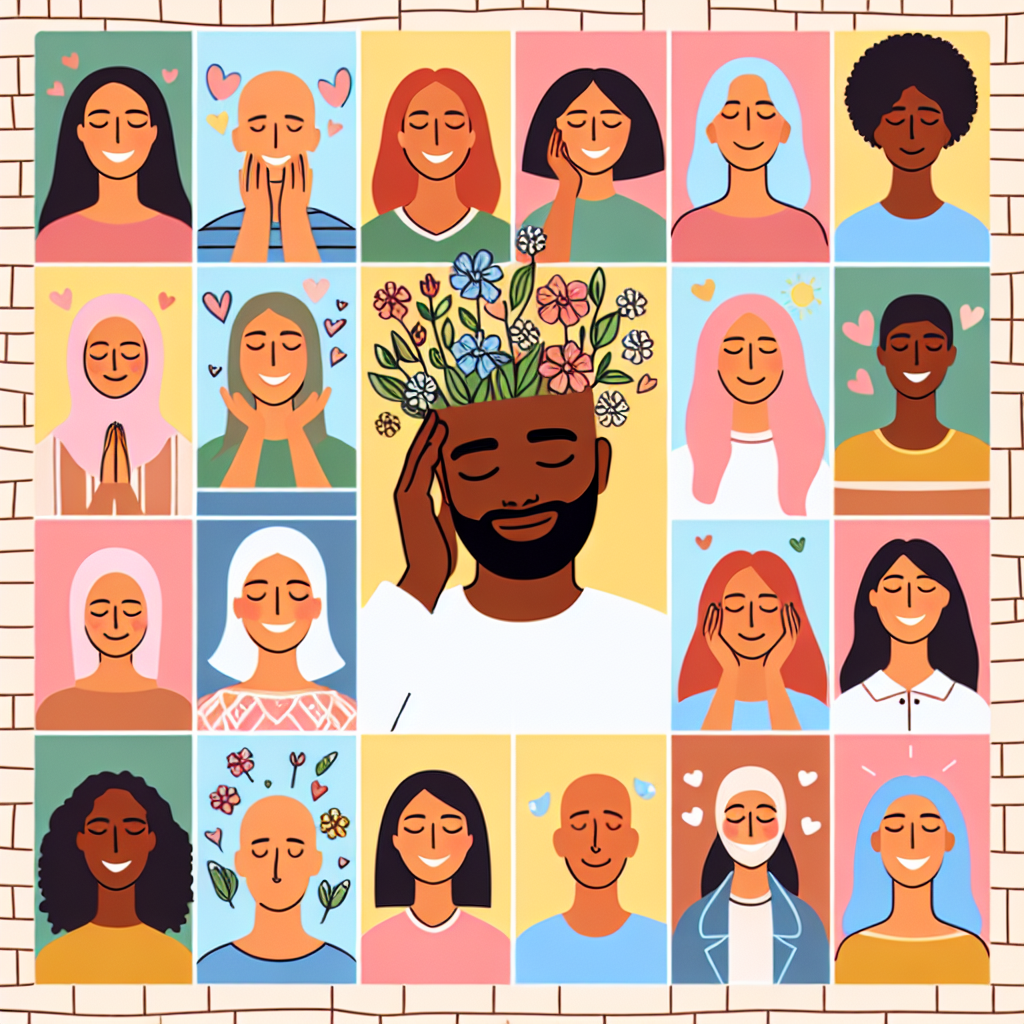Self-love is a powerful tool that can greatly impact one’s self-esteem and overall well-being. When we learn to truly love and accept ourselves, we are able to embrace our unique qualities and fully realize our own worth and potential. Mastering self-love is an ongoing journey that involves self-reflection, self-compassion, and self-acceptance. In this article, we will explore how to improve your self-esteem and embrace your unique qualities through the practice of self-love.
Self-esteem is the overall opinion we have of ourselves and our abilities. It is closely linked to our self-worth and self-confidence. When we have low self-esteem, we tend to doubt our abilities, feel unworthy, and criticize ourselves harshly. Improving self-esteem begins with practicing self-love and learning to appreciate and accept ourselves for who we are.
One of the key components of self-love is self-compassion. This means treating ourselves with kindness and understanding, especially when we are going through difficult times or facing challenges. It involves accepting that we are not perfect and that it is okay to make mistakes. By practicing self-compassion, we can become more resilient and better able to cope with life’s ups and downs.
Another important aspect of self-love is self-acceptance. This means embracing all aspects of ourselves, including our strengths and weaknesses, our successes and failures, and our unique qualities. It involves letting go of self-judgment and accepting ourselves unconditionally. When we learn to accept ourselves as we are, we are able to build a strong sense of self-worth and self-confidence.
Here are some tips for mastering self-love and improving your self-esteem:
1. Practice self-care: Take care of yourself physically, emotionally, and mentally. Practice regular exercise, eat a healthy diet, get enough sleep, and engage in activities that bring you joy and relaxation.
2. Cultivate self-awareness: Take time to reflect on your thoughts, feelings, and behaviors. Notice when you are being self-critical or judgmental and work on replacing those negative thoughts with more positive and affirming ones.
3. Set boundaries: Learn to say no to things that do not serve you or that drain your energy. Setting boundaries helps protect your well-being and allows you to focus on what truly matters to you.
4. Surround yourself with positive influences: Spend time with people who uplift and support you. Surround yourself with friends and family members who believe in you and encourage you to be your best self.
5. Practice gratitude: Focus on the things you are grateful for in your life. Gratitude helps shift your perspective from what you lack to what you have, promoting a more positive outlook and sense of well-being.
6. Seek support: If you are struggling with self-esteem issues, consider seeking support from a therapist or counselor. Talking to a professional can help you gain a better understanding of yourself and develop healthier coping mechanisms.
Embracing your unique qualities is an essential part of self-love. Each of us is a complex and multifaceted individual with our own unique strengths, talents, and interests. Embracing these qualities can help boost your self-esteem and confidence and lead to a more fulfilling and authentic life.
Here are some ways to embrace your unique qualities:
1. Identify your strengths: Take time to reflect on your talents, skills, and abilities. What are you good at? What do others admire about you? Celebrate your strengths and use them to your advantage.
2. Explore your passions: Discover what lights you up and brings you joy. Whether it’s a hobby, a creative pursuit, or a cause you care about, make time to engage in activities that align with your passions and interests.
3. Accept your flaws: Nobody is perfect, and that’s okay. Embrace your imperfections and learn to love yourself for who you are, flaws and all. Remember that your flaws make you human and add to your unique character.
4. Be authentic: Be true to yourself and honor your values, beliefs, and interests. Avoid trying to conform to others’ expectations or ideals and instead focus on being authentic and genuine in all aspects of your life.
5. Celebrate your differences: Embrace the qualities that make you different from others. Your uniqueness is what sets you apart and makes you special. Celebrate your individuality and be proud of who you are.
Frequently Asked Questions (FAQs):
Q: What is the difference between self-love and self-esteem?
A: Self-love is the practice of caring for oneself and embracing one’s unique qualities, while self-esteem is the overall opinion one has of themselves and their abilities. Self-love is a more holistic concept, encompassing self-compassion, self-acceptance, and self-care, while self-esteem focuses more on one’s sense of worth and confidence.
Q: How can I practice self-love on a daily basis?
A: There are many ways to practice self-love on a daily basis, such as setting aside time for self-care activities, practicing self-compassion and gratitude, setting boundaries, and surrounding yourself with positive influences. Consistent practice of these habits can help cultivate a more loving and accepting relationship with yourself.
Q: What if I struggle with low self-esteem and self-love?
A: It is common to struggle with low self-esteem and self-love at times, but it is possible to improve these aspects of yourself with time and effort. Seeking support from a therapist or counselor can be helpful in gaining insights into your self-esteem issues and developing healthier coping strategies.
In conclusion, mastering self-love is a journey that involves nurturing a positive and compassionate relationship with oneself. By practicing self-compassion, self-acceptance, and self-care, you can improve your self-esteem, embrace your unique qualities, and lead a more fulfilling and authentic life. Remember that you are worthy of love and acceptance just as you are, flaws and all. Embrace your uniqueness and celebrate the wonderful individual that you are.




Leave A Comment